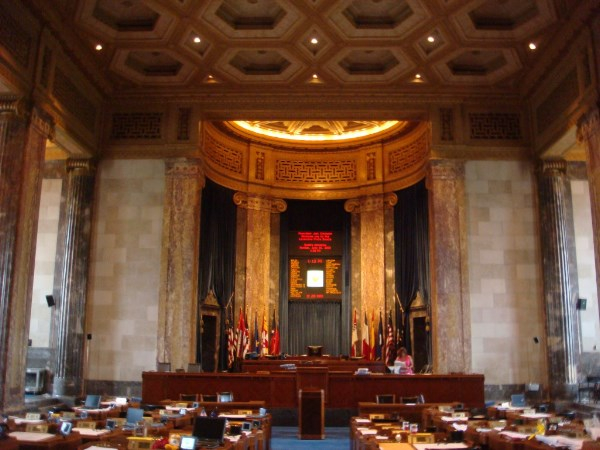
The short eight-day special session called by Governor Jeff Landry actually ended in a very short five days. It was an ambitious agenda for the first convening of the newly-elected Legislature, but at the end of the day only two bills of consequence passed. From CABL’s perspective, that’s a good thing.
There was only one thing the Legislature really had to do in last week’s special session – try to redraw congressional district maps to respond to court rulings requiring the state to create another House district where a Black candidate stood a chance of winning. Various federal courts had basically agreed that the number of seats in the U.S. House of Representatives should better reflect the state’s demographics where about one-third of the population is African-American.
But, in a surprise to many, the governor issued a call for the session that went far beyond that issue. Among other things it included items that would allow the redrawing of districts for the state Supreme Court, changing the number of Supreme Court justices, coming up with a new method for electing justices to the court, determining a new way to select the chief justice, making changes to campaign finance laws, and switching to a party primary system for elections.
CABL felt like that was too much heavy lifting on important matters to decide in a short special session, especially since there had been virtually no discussion about most of these issues during the recent election cycle and many new legislators were considering these things for the very first time.
Apparently, most lawmakers agreed. Only two substantive bills passed – congressional redistricting and a limited return to party primaries.
The redrawing of congressional maps was contentious as always, but lawmakers did agree to create a second majority-minority district. In this case it’s the 6th District, now held by Rep. Garrett Graves. In its new configuration it runs from Caddo parish in northwest Louisiana roughly down the Red River to pick up parts of Alexandria, Lafayette, and Baton Rouge. In terms of population, it is about 56% African-American.
It joins the 2nd Congressional District seat, currently held by Rep. Troy Carter, as the second district where a majority of residents are African-American.
People will argue about the new boundaries, as they always do. But redrawing district maps was the primary reason for calling the special session and in that sense, lawmakers accomplished what they came for.
The other major bill that passed dealt with making a major change in our election system, moving from our current “jungle” primary, where anyone can vote for anyone, to a party primary system with more limited voter participation.
Even though that legislation passed, the final version looked a lot different than the original. Under the new system there will be party primaries for congressional elections, the Supreme Court, the Public Service Commission, and BESE. In those primaries, voters are essentially nominating candidates from the Republican and Democratic parties to run in the general election.
Unlike the original bill, a person who is not affiliated with either party can choose a party ticket to vote for. If no candidate gets a majority, there will be a runoff before the general election.
For other positions, like the governor, other statewide offices, the Legislature, appellate and district court judges, and local offices, the current jungle primary continues. That was a change from the original bill which envisioned all but candidates in local races participating in the party primary.
Another big change is that instead of parts of the law taking effect this year, implementation won’t begin until 2026. That’s a good thing and suggests lawmakers understood they needed more time to consider the implications of major election changes, even as they felt compelled to pass a bill.
There’s a lot for them to think about. In the version that the Legislature passed, in certain years you might see candidates for some offices running in party primaries in March. If no candidate gets more than 50% of the vote, there would be a party primary runoff. Then the jungle primary would take place in the fall for the rest of the state and local races on the ballot, followed by the general election.
That would mean more big elections than we have now and more confusion for voters than we need. At this point, it seems unlikely that the election system that just passed will go forward without the Legislature revisiting it in some manner.
But the point that should be taken is that legislators realized after they got to the Capitol that this session was biting off more than they could chew. They passed the legislation they needed, and effectively delayed for two years the only other bill that passed.
That leaves the public with more time to understand the changes being made to the state’s election system, suggest alternatives, or reject them all together.
That may not be what everyone wanted, but that’s how it should be.
